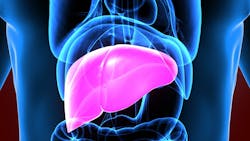For patients with acute liver failure (ALF) and acute-on-chronic liver failure (ACLF), the toxins that build up in their blood can cause confusion, tremors, vomiting, abdominal pain and stomach swelling.
Now, doctors at the University of Chicago Medicine have a new treatment to help: Molecular Adsorbent Recirculating System (MARS) therapy, a liver dialysis system that removes waste and toxins from the blood when the liver can no longer do its job. UChicago Medicine is one of the first hospitals in Illinois to offer MARS therapy for patients with ALF and ACLF.
MARS therapy combines a traditional kidney dialysis machine with the MARS liver dialysis machine. A tube called a catheter is inserted into the patient’s vein; their blood travels through the catheter, then the MARS machine, then the kidney dialysis machine. Special filters in the MARS machine remove toxins that bind to albumin, a protein made by the liver, as well as larger proteins that regular kidney dialysis filters cannot remove.
MARS is an FDA-approved mechanical device for the treatment of acute liver failure. It is FDA-approved for treating acute liver failure due to drug overdoses and poisoning (the most common being acetaminophen (Tylenol) overdose), as well as liver-related encephalopathy, a condition that can cause serious neurological problems.

